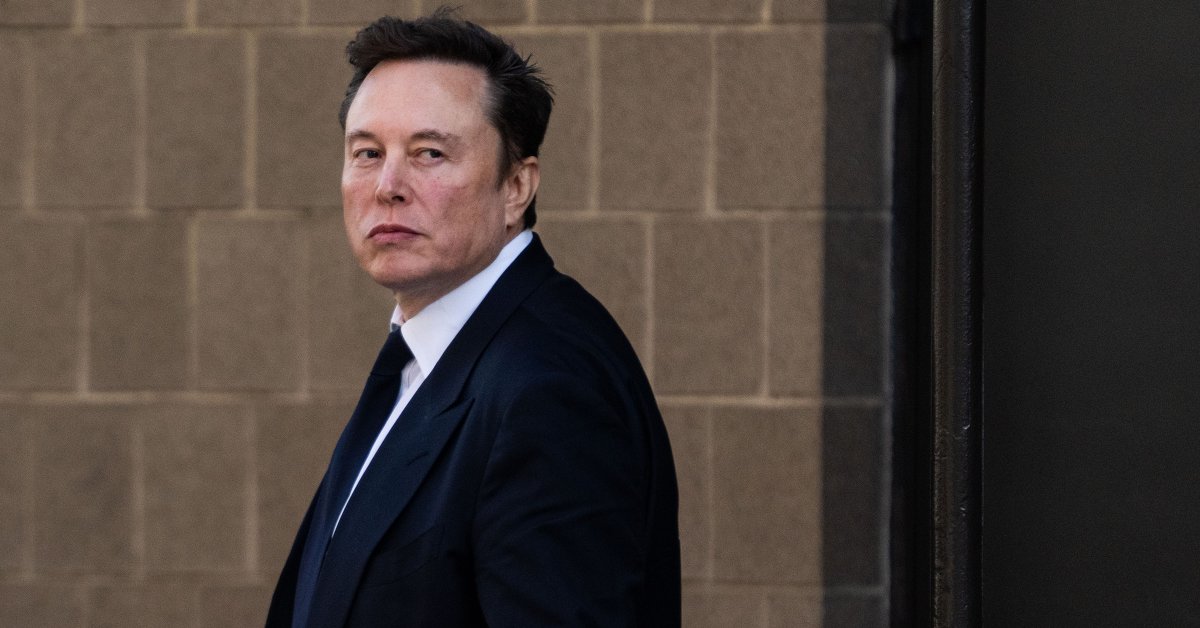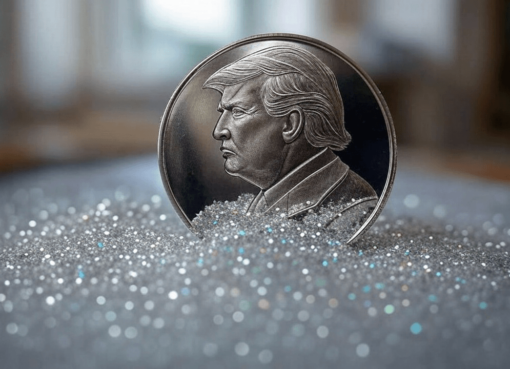The standoff at 1300 Pennsylvania Avenue was not much of a spectacle. On the first day of February, a handful of men working for Elon Musk had come to the U.S. Agency for International Development (USAID), a few blocks from the White House, demanding full access to its headquarters. The agency’s staff refused. No guns were drawn. No punches thrown. Nobody involved the police. But in these early days of the Trump Administration, perhaps no other scene revealed more clearly the forces reshaping America’s government.
On one side stood an institution with a 64-year history, a $35 billion budget, and a mission enshrined in federal law. On the other stood Musk’s political wrecking crew. They identified themselves as members of the Department of Government Efficiency (DOGE), a collection of temporary staffers with no charter, no website, and no clear legal authority. Its power derives from Musk, the wealthiest person on the planet, who has been deputized to dismantle vast swaths of the federal bureaucracy—slashing budgets, gutting the civil service, and stripping independent agencies of the ability to impede the President’s objectives.
USAID leadership had allowed Musk’s team, a group of his young and eager followers, to spend several days inside their headquarters at the end of January. “The DOGE kids,” as some of the staffers called them in private, walked the halls with clipboards in their hands, examining desks and questioning managers, according to several USAID officials who described the events to TIME. But as the weekend arrived, their demands—including access to sensitive facilities designed to store classified information—went too far for the agency’s heads of security. The men from DOGE threatened to call the U.S. Marshals and have them clear the building. They also informed Musk about the problem. “USAID is a criminal organization,” Musk wrote to his 215 million followers on his social media platform, X, soon after. “Time for it to die.”
The cause of Musk’s crusade remained unclear. But regardless of the reason, by the following morning, an agency that annually disburses tens of billions of dollars across the globe, fighting famine and disease and bringing clean water to millions, had mostly ceased to function. Within a week, nearly all its staff were placed on leave, its offices around the world shut down.
Every other government bureau got the message loud and clear. No single private citizen, certainly not one whose wealth and web of businesses are directly subject to the oversight of federal authorities, has wielded such power over the machinery of the U.S. government. So far, Musk appears accountable to no one but President Trump, who handed his campaign benefactor a sweeping mandate to bring the government in line with his agenda. DOGE directed all of TIME’s questions about its work to the White House, which declined to comment.
Read More: How Elon Musk Became a Kingmaker.
Already, the DOGE team has taken over the U.S. Digital Service and established a beachhead within the federal human-resources department, the Office of Personnel Management (OPM). The Education Department is on edge, fearing a self-decapitation mandate is in the offing. Few agencies seem safe. Musk has shown that he will tolerate no opposition, no matter how justified. Days before the drama at USAID, a Treasury official refused DOGE access to the U.S. federal payment system. The official was forced to retire, and the newly appointed Treasury Secretary, Scott Bessent, gave DOGE the access it demanded. The Administration agreed on Feb. 5 to restrict that access, at least temporarily, after a group of past and present employees sued.
These are just the first ripples in a massive antigovernment wave. Budgets will be hacked. Valuable programs will be eliminated. Career civil servants will be purged, replaced with political appointees whose primary qualification is apparent fealty to the President. This is the course the electorate chose. And to many, the idea of one of the world’s most accomplished entrepreneurs attacking a sprawling, sclerotic federal bureaucracy with the same velocity and determination he brought to his car startup or rocket company is cause for celebration, not alarm. “The federal government is so big that there are surely significant opportunities for saving and efficiency,” says Robert Doar, president of the American Enterprise Institute, a center-right think tank. “The fact that the President and his team is giving this a lot of attention is a good thing.”
But a public backlash may be growing to Musk’s mission, and far more is at stake than the size of the federal balance sheet, the head count at agencies inside the Beltway, or the dangers of one unelected man possessing such unconstrained power. Soon Americans are going to learn where they interact with the federal government in ways they didn’t realize or took for granted. Companies that export tech products to China may no longer have State or Commerce Department employees available to explain, for free, how to avoid violating criminal law. Farmers in the Midwest may soon find USAID-funded buyers no longer paying for sacks of flour to send to refugee camps. Around the world, millions of people who depend on the U.S. for food, medicine, and shelter are suddenly on their own.
Read More: Why TIME Chose Musk As 2021 Person of the Year.
For now, millions of government workers find themselves at Musk’s mercy. One described her team at the Department of Homeland Security assuming a “defensive crouch” as they awaited a visit from the DOGE. For an inkling of their fate, she added, her colleagues had turned to a book called Character Limit, which chronicles the way Musk took over Twitter two years ago and fired 80% of its staff, often with chaotic and lasting results.
The similarities to his assault on the bureaucracy have been uncanny. On Jan. 28, millions of civil servants across government received an email offering them eight months’ pay in exchange for their resignation. Musk had proposed much the same deal to Twitter’s employees two years earlier. He even used the same subject line: “Fork in the road.”
None of this came without warning. Among Musk’s friends in Silicon Valley, many understood his takeover of Twitter as preparation for a greater cause. “The mood is that hopefully Musk can do the same thing with the U.S. government,” one told TIME in November. Veterans of Trump’s first Administration likewise laid out their plans long before the elections, publishing a 900-page report known as Project 2025. One of its lead authors, Russell Vought, said in a speech two years ago that he wanted civil servants to be “traumatically affected” by the purge he envisioned. “We want their funding to be shut,” he said. “We want to put them in trauma.”

of Management and Budget, at a confirmation
hearing on Jan. 15.Andrew Harnik—Getty Images
On the campaign trail, Trump swore he had nothing to do with the plan. “It was inappropriate that they would come out with a document like that,” he told TIME in November. “Some things I vehemently disagreed with.” But once in office, he picked Vought to be in charge of the White House Office of Management and Budget, which now works closely with Musk to enact crucial parts of Project 2025. So far, the frenetic opening moves of the Trump presidency have tracked nearly two-thirds of its prescriptions, according to a TIME analysis.
Musk never hid his intentions. Two weeks after the election, he co-wrote a piece in the Wall Street Journal that promised DOGE would help Trump “hire a lean team of small-government crusaders,” who would work to bring “mass head-count reductions across the federal bureaucracy.” That recruitment drive began soon after the elections, drawing from Musk’s acolytes in Silicon Valley, some barely out of college, and priming them to fan out across Washington.
Read More: Inside Elon Musk’s Struggle For the Future of AI.
The man Musk put in charge of staffing at DOGE was an aerospace engineer named Steve Davis, who previously led his cost-cutting efforts at Twitter. In late December, as the presidential transition unfolded inside the White House, Davis took part in a series of meetings with members of the Biden Administration. The Democratic staffers noted his fixation with an obscure branch of the White House called the U.S. Digital Service. Davis wanted to know how it operated, who it reported to, and what it could access.
Created in 2014, the USDS works with federal agencies to improve computer systems and databases. It houses a map of the government’s technology infrastructure and has contact points for the technology officer at nearly every federal agency. That made it the perfect place to host the DOGE. If Musk wanted to wither the limbs of the federal government, the USDS provided the veins that would let the poison flow.
The empowerment of USDS started on Inauguration Day. One of Trump’s first Executive Orders renamed it “the United States DOGE Service,” neatly preserving the office’s acronym. The order also ensured that the new entity would report directly to the White House chief of staff. Since then, the office has set up shop inside the Departments of State and Treasury. It began accessing personnel computer systems, firing contractors, and blocking payments on their contracts.
Musk also sent a team to OPM. The office holds records on 2.1 million workers, the email address for nearly every federal employee, and tracks $59 billion per year in federal health care premiums and $88 billion per year in payments to federal retirees. The mass buyout offer to government employees originated from within Musk’s team at OPM, according to a source familiar with those actions. (Both DOGE and the White House declined to comment.)
Next, the DOGE team set to starving OPM itself. Brian Bjelde, who recently worked as vice president of human resources at Musk’s aerospace firm, told career supervisors at OPM that the “target” was to slash 70% of its staff, a move that would hobble its health care benefits and retirement-planning teams, says a current OPM official. Some senior leaders at OPM have been locked out of key databases, the official says, and political appointees have access to systems, including the Enterprise Human Resources Integration, without standard safeguard procedures designed to keep such information private. That system includes information like pay grades, length of service, Social Security numbers, dates of birth, and home addresses.
Days after Trump took office, the White House ordered a freeze on federal spending—from foreign aid to public-health programs, and everything in between. It would be lifted, the Administration said, as agencies fell in line with the President’s agenda: cracking down on immigration, ending diversity efforts, and stopping investments that reduce the impact of fossil fuels on the environment. Facing a court’s action, the White House rolled back the order.

Musk’s downsizing pressed ahead, and Trump continued to give his blessing. “Elon can’t do—and won’t do—anything without our approval,” Trump told reporters in the Oval Office on Feb. 4. “We’ll give him the approval where appropriate,” he added. “Where not appropriate, we won’t.” Some took it as a sign that Trump might rein in his attack dog. But civil servants are not waiting around for that to happen. In Northern Virginia, home to tens of thousands of workers on the federal payroll and military service members, the typical town-hall meeting in the town of Leesburg attracts a few dozen people. Hundreds gathered on the night Musk shut down USAID. “We’re hearing bizarre stories,” says Representative Suhas Subramanyam, the local Democratic Congressman who spoke at the event. His office has been flooded with workers describing DOGE’s takeover, and he instructed his staff to log their testimony and assist whistle-blowers. Much of what they witnessed is “simply illegal,” Subramanyam insists to TIME. “We’re almost being tested and dared to sue or investigate.”
Read More: Across Pennsylvania, Musk Deploys His Fame and Fortune For Trump.
Some lawsuits have worked. The White House complied with court orders blocking its attempt to freeze trillions of dollars in federal spending. A judge’s ruling on Feb. 6 delayed the deadline for the buyout offer to government employees. Unions have filed suits related to DOGE on behalf of federal workers. Even Musk’s usual admirers have warned he is overreaching. “The lawsuits are already flying,” a Feb. 4 Wall Street Journal editorial noted, “and courts will derail Mr. Musk’s project before it even gets off the ground if he isn’t careful.”
On Capitol Hill, Musk’s assault on the bureaucracy has set up a battle with Democrats that could determine the future of the government and the balance of power within it. “We don’t have a fourth branch of government called Elon Musk,” Maryland Democrat Jamie Raskin told a crowd outside USAID on the afternoon of Feb. 3, while the men from DOGE tried to impose their demands inside.
Raskin was right. But the agency staffers listening to him on Pennsylvania Avenue, unsure of whether they still had a job, could not tell how much power Musk had acquired, and whether he would bend the other branches of government to his will. One staffer seemed especially skeptical. Yes, she told TIME, the Constitution grants Congress the power of the purse. But Musk had shown his power to yank it away.
“There’s only so much Democrats can do,” she said, not wanting to give her name lest it attract more attention from DOGE. Her official email account had been shut down, and she could no longer access her desk at the agency. Like thousands of her colleagues, and millions of Americans, she was left to watch Musk’s moves play out, wondering how far he would go, and what, if anything, could stop him. —With reporting by Eric Cortellessa, Philip Elliott, Nik Popli, and Tessa Berenson Rogers/Washington




